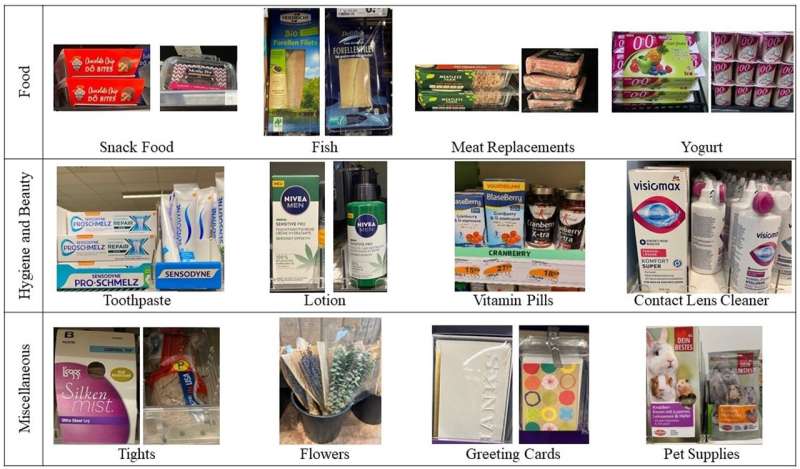This article has been reviewed according to Science X's editorial process and policies. Editors have highlighted the following attributes while ensuring the content's credibility:
fact-checked
peer-reviewed publication
trusted source
proofread
How unnecessary paper packaging creates the illusion of sustainability

Many products are wrapped in multiple layers of material, generating huge amounts of packaging waste. Tilburg University researcher Tatiana Sokolova found that unnecessary paper packaging creates the illusion of sustainability, because paper is perceived by consumers as environmentally friendly—even when it's doing more harm than good. "Objective and perceived sustainability are not necessarily the same thing."
Packaging waste is a serious environmental problem worldwide. The U.S. Environmental Protection Agency reports that more than 80 million tons of packaging was produced in 2018, two-thirds of which is plastic or paper. Once the packaging is no longer used, some of it is recycled and some ends up in landfills. Despite the potential environmental and financial benefits of reducing excessive packaging, many products remain overpacked.
Plastic + paper seen as more environmentally friendly
Tatiana Sokolova, affiliated with the Faculty of Economics and Management at Tilburg University, researched how consumers react to such overpackaging, where unnecessary paper is added to plastic. Eight studies with consumers from the Netherlands, the U.S. and the U.K. show that people rate plastic + paper packaging as more environmentally friendly than identical plastic packaging without paper.
Driven by their biased perception of environmental friendliness, consumers are willing to pay more for overpackaged products and are more likely to choose them.
Effect of 'minimal packaging' label
In one of the studies, a test was done with minimal packaging. In this, a group of participants could choose between muesli bars wrapped in plastic + paper or in plastic only. Another group of participants could also choose between bars wrapped in plastic and paper or just plastic. But now with a sticker on the plastic-only option that said "minimal packaging."
In the first group, without the intervention, people were on average more likely to choose the visibly overpackaged plastic + paper muesli bar than the plastic-only alternative. Once the "minimal packaging" sticker was added to the plastic packaging, consumer preferences changed. They became more inclined to choose the minimally packaged muesli bar over the overpacked plastic + paper counterpart.
Sustainable choices
"The more general lesson from this research is that objective and perceived sustainability are not necessarily the same thing," Tatiana Sokolova says. "If we want consumers to make more sustainable choices, we first need to consider whether they know what a sustainable choice means. And if consumers' perception of sustainability is biased, we should look for interventions that will better align objective sustainability and sustainability perceptions."
The study is published in the Journal of Consumer Research.
More information: Tatiana Sokolova et al, Paper Meets Plastic: The Perceived Environmental Friendliness of Product Packaging, Journal of Consumer Research (2023). DOI: 10.1093/jcr/ucad008
Journal information: Journal of Consumer Research
Provided by Tilburg University





















